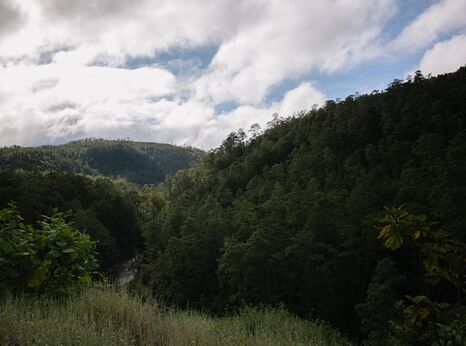Honduras: Water defenders continue in jail

The Municipal Committee for the Defence of Common and Public Assets (Comité Municipal por la Defensa de los Bienes Comunes y Públicos, CMDBCP) from Tocoa, in Northern Honduras, gathers several organisations defending land and environmental rights. They oppose the operating license issued to the mining company Inversiones Los Pinares in the Carlos Escalera National Park, formerly known as Montaña de Botaderos, in the municipality of Tocoa. On 1 August 2018, local residents set up the “Guapinol camp” to peacefully protest against the license and mining exploitation in the core zone of a protected area of the water sources on which they depend for their survival. They filled several criminal complaints before local courts which are still pending.
Members of the CMDBCP have faced at least two criminal proceedings since 2018 for defending the Guapinol and San Pedro Rivers. In March 2019, a judge dismissed the charges against 12 of them accused of “aggravated arson” and “unjust deprivation of liberty”, but the public prosecutor filled an appeal. On 13 August 2020 the Court of Appeals of Francisco Morazán revoked the dismissal ordered in March for five of the 12 defenders, which means they could face a new trial and be sent to pre-trial detention once again.
On 26 August 2019, authorities detained José Daniel Márquez Márquez, Kelvin Alejandro Romero Martínez, José Abelino Cedillo, Porfirio Sorto Cedillo, Orbín Nahúm Hernández, Arnold Javier Alemán, and Ewer Alexander Cedillo Cruz. A week later, on 1 September, a court charged them, and a judge ordered their pre-trial detention. After more than two months in a high security jail, authorities transferred them, on 29 November 2019, to the Olanchito detention centre, Yoro department (North), where they remain since. Jeremías Martínez Díaz is being held in La Ceiba Penal Center, Atlántida department (North), since 5 December 2018. To date, several appeals against their detention and habeas corpus petition requesting an alternative measure for both the illegality of the detention and the risk of Covid-19 were declared inadmissible or are yet to be resolved.
Following a visit on 16 April 2020 to the Olachito Penal Centre, the National Mechanism and Committee for the Prevention of Torture and Other Cruel, Inhuman or Degrading Treatment (MNP-CONAPREV) requested a review of the preventive detention of the seven Guapinol defenders (see Urgent Action). In its opinion number 85/2020 at its 89th session, 23-27 November 2020, the UN Working Group on Arbitrary Detention stressed that there is no legal reason for the use of pre-trial detention in the case of defenders José Daniel Márquez Márquez, Kelvin Alejandro Romero Martínez, José Abelino Cedillo, Porfirio Sorto Cedillo, Orbín Nahúm Hernández, Arnold Javier Alemán, Ewer Alexander Cedillo Cruz and Jeremías Martínez Díaz and emphasize the current risk they are facing in the context of COVID-19. The Working Group asked for the immediate release and redress of the eight defenders, and to investigate those suspected of criminal responsibility for their illegal detention. On 12 March 2021, local organizations confirmed that José Daniel Márquez Márquez, tested positive for COVID-19. He was isolated and now is back in the Olanchito prison.
Honduras faces a serious problem of overcrowded jails for years. According to the 2020 MNP-CONAPREV report prisons in Honduras are overcrowded to 166% of their installed capacity with only 45% of the population having a final decision on the merits of their case. The Inter-American Commission on Human Rights regularly expresses concern about the conditions of detention in Honduras, which present a risk to the life and integrity of persons deprived of their liberty due to poor infrastructure, lack of hygiene, lack of sanitary facilities and decent places to sleep, negligent medical care, insufficient food with little nutritional value, and poor and inadequate access to water.
In September 2020, Honduran prison authorities reported that a total of 1,749 detainees tested positive to COVID-19; in 2021, there are 108 cases reported. Over the last five years, Amnesty International has continuously alerted on numerous killings and other attacks against activists in Honduras, which is one of the deadliest countries in the world to be a human rights defender.